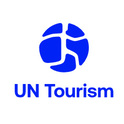Transforming Tourism: UNWTO Global Startup Competition Winners Announced
Startups from around the world have been recognized for their unique contributions to sustainable and responsible tourism in the UNWTO SDGs Global Startup Competition.
The competition, which was supported by the United Nations Innovation Network, attracted some 10,000 initial proposals. From these, the jury chose 25 winners from 18 countries, highlighting the array of tourism talent in every global region and its widespread ability to contribute to the Sustainable Development Goals (SDGs). Shortlisted finalists were judged according to criteria which included the potential of the startups to contribute to a specific Goal, their ability to be scaled-up and the maturity of both the product and the team behind it.
The 25 winning startups, selected by a jury made up of leaders from across the tourism sector, offer distinct solutions for advancing the SDGs. The Americas led the way in submitting winning proposals, with nine of the competition winners coming from the region. Europe provided eight winners, Asia and the Pacific six, and Africa and the Middle East one winner each.
By embracing innovation, we can realise this potential and build a better future for people and planet through tourism
Potential for a better future
"The winners show the power of new ideas for transforming our sector", said UNWTO Secretary-General Zurab Pololikashvili in recognizing tourism's potential to contribute to all Sustainable Development Goals. He added: "By embracing innovation, we can realise this potential and build a better future for people and planet through tourism. I congratulate them all and look forward to seeing these startups grow and deliver positive change."
Lisandro Menu-Marque, Director-General of International Business Development for Globalia and Wakalua said: "The take-off of post-Covid tourism is moving closer and closer. The implementation of many of the innovative solutions, which have been brought us entrepreneurs from all over the world, will be part of this. The collaboration of institutions, governments and corporations will help host and scale up many of these projects through the Wakalua Hub, to make tourism a much more sustainable, responsible and socially impactful sector, all with the support of the UNWTO."
Globalia is a key ally of UNWTO in its shift to lead the positive transformation of the sector, working together to identify and promote innovation through several competitions over recent years.
Support and Guidance
The winning startups will now be given expert support and backing to develop further, including through guided mentorship programmes from Amadeus, Google, IE University and FarCo, and tailored mentorship sessions from Mastercard and ClarkeModet.
The winners will also be invited to take part in a pitching event, to be hosted by Wakalua within the framework of Spain's International Tourism Fair (FITUR). Another pitching event will take place at the Tourism Tech Adventures Forum, due to be held in Qatar in collaboration with Qatar Airways and Qatar National Tourism Council, another partner for the project.
Furthermore, the winners will benefit from access to all UNWTO's collaborators for the competition, opening the door for potential game-changing pilots and networking opportunities with Amazon Web Services, Globant, BBVA, the Inter-American Development Bank (IDB) and IDB Lab, Telefonica, Plug and Play, the Advanced Leadership Foundation, Impact Hub, mentorDay and the destination partners for the Competition.
The winners and the SDG that the startup will help advance are as follows:
SDG1 - No poverty
Etnica (Guatemala)SDG2 - Zero hunger
Ifarm Agritech (Kenya)SDG3 - Good health and well-being
BlueDot (Canada)SDG4 - Quality education
Immersion India (India)SDG5 - Gender equality
Sisterwave (Brazil)SDG6 - Clean water and sanitation
ECOLOO Greentech Malaysia SDN BHD (Malaysia)Zero Mass Water (United States of America)
SDG7 - Affordable and clean energy
BeFC (France)Enexor BioEnergy (United States of America)
Swimsol (Austria)
SDG9 - Industry, innovation and infrastructure
DefinedCrowd (United States of America)FREED GROUP (aka TravelFlan) (Hong Kong)
SDG10 - Reduced inequalities
Travaxy - accessible travel (Israel)SDG12 - Sustainable consumption and production
Lumitics (Singapore)SDG13 - Climate action
ClimateTrade (Spain)Opus 12, Inc. (United States of America)
Safety Line (France)
SDG14 - Life below water
Seven Clean Seas (Singapore)SDG16 - Peace, justice and string institutions
Impulse Travel (Colombia)RELATED LINKS
- Sustainable Development Goals Global Startup Competition
- UNWTO Innovation Services 2020: A Year in Review
About UN Tourism
The World Tourism Organization (UN Tourism), a United Nations specialised agency, is the leading international organisation with the decisive and central role in promoting the development of responsible, sustainable and universally accessible tourism. It serves as a global forum for tourism policy issues and a practical source of tourism know-how. Its membership includes 166 countries, 6 territories, 2 permanent observers and over 500 Affiliate Members from the private sector.
Media enquires: [email protected]
